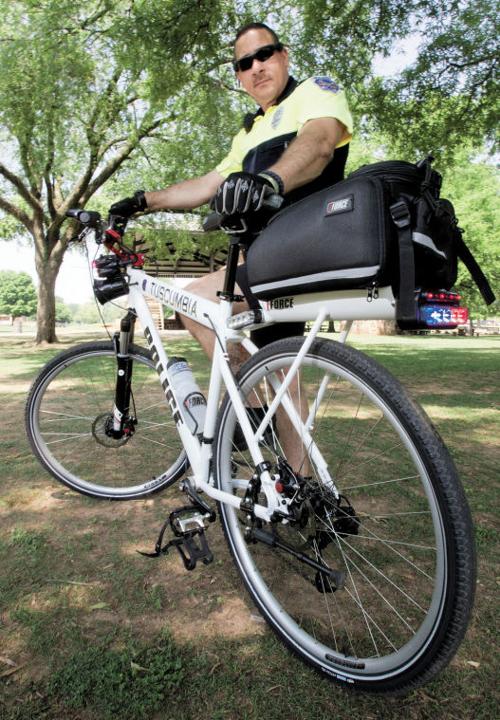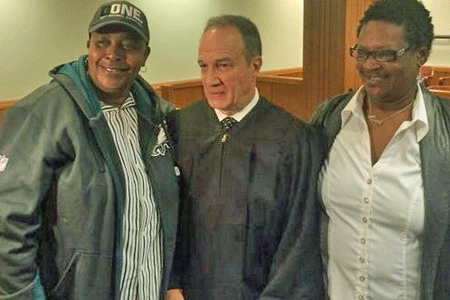I support Confederate veterans and because of that I have repeatedly been called a racist. People have stated that I support the idiot that killed George Floyd. Believe me, there is no love lost for this police officer. I don't think he deserves jail time, just announce to the public where he will be released and drop him off there. Justice will quickly be served. Trust me, you don't have to be black to have problems with some of these "Clint Eastwood" police officers. They tend to forget they work for us and are there for us. I've heard that George Floyd was on drugs, etc, but does this give a civil servant the right to kill him? This is not the kind of America the founding fathers envisioned when they formed this government.
Having explained to everyone my personal feelings on the matter, I would like to explain what we have serving as police officers in this country. During the recent shut down of the state of Alabama, Huntsville Police took action against a salon for operating without being an essential business. Three such businesses were cited. Now fast forward to when the shutdown is over and look at the city of Birmingham, Alabama. A Confederate monument was attacked and damaged against state law by rioters and the police are too afraid to intervene. Oh, they are a cocky bunch against hair dressers and store owners, but when they face a real challenge, they are nowhere to be found. Doesn't that remind you of the bullies you faced in school. They are extremely tough when they face the weak, but when they face a challenge, they always back down. Welcome to our police force today. Scared of their shadows unless they outnumber their opponents five to one.

Tuscumbia Prosecutor Hal Hughston III
Let's take this all a step further. My mom was in city court in Tuscumbia, Alabama and asked for a trial. (City courts in Alabama are make believe courts to obtain these small towns money and that is all they are concerned with). The prosecutor named Harold Hughston III had been through a rough day (according to him). I was representing my mom because she was almost deaf and couldn't hear. He instructed me to inform her that there would be no trial, she was going to pay the court cost and be done with it. I told him that she wanted a trial and that was her right under the U.S. Constitution. He replied, "I already told you, there is not going to be a trial, I've had a long day!" I began to argue with him when he turned to the city judge named John Kennemer (a local lawyer) and instructed him to throw me out of the courtroom. I don't know what Kennemer said because I turned and headed for the door. Just before reaching the door, a Tuscumbia police officer pushed me in the back almost sending me through the glass doors. This officer is one of those police officers like Derek Chauvin and believes he is the next Dirty Harry. His name is Steve Higginbotham and he is the type who wears his uniform about five sizes too small so he can show off his muscles. My dad always referred to him as Tuscumbia's version of "Barney Fife." We all know his type.

Officer Higginbotham the "badass"
I know nothing about this super cop with the enormous ego who works in this small town and probably makes little more than minimum wage, but I've been told many rumors about him. None are very appealing. I was told he had been a New York police officer by a volunteer firefighter near town and he couldn't cut it there, so he had to come to Tuscumbia, Alabama to get a job. I have no idea and I don't care. Everyone in the area refers to the Tuscumbia Police Department as America's version of the Soviet police. They heard a rumor that someone was growing marijuana on Colbert Heights Mountain outside of their jurisdiction and they got all dressed up in combat gear and raided this man's farm to no avail. They also traveled west about fifteen miles to Cherokee, Alabama to write a ticket to the mayor's wife for driving a golf cart on the street. It sounds like they have little to do. Another citizen of the town of Cherokee had an arrest warrant over some small affair. He didn't know he had this warrant. He was pulled over and handcuffed by Tuscumbia Police and then beaten up. He was on crutches with a broken leg because of these super cops, yet there was nothing he could do about it. They are extremely tough when they have someone handcuffed or alone and outnumber their opponent, the rest of the time, you won't see them. Another episode occurred a little over a year ago when they were going to arrest a man named Howard. They shot his house full of tear gas and one of the canisters caught the house on fire. They then told the media that he started the fire himself. Remember Waco? We've heard this story before. So, who do these super cops answer to? Nobody, because, just like in my case, the mayor Billy Shoemaker sent my dad to the city prosecutor Kennemer for a copy of the video. Kennemer sent dad back to the mayor and the mayor sent dad back to Kennemer. Kennemer informed my dad that he couldn't release the video because he was instructed by the mayor not to and he had to work for these people. Enough said. When are we going to stand up to these overbearing, thieving local and state governments. All they want is for us to give them our money and shut up.




























